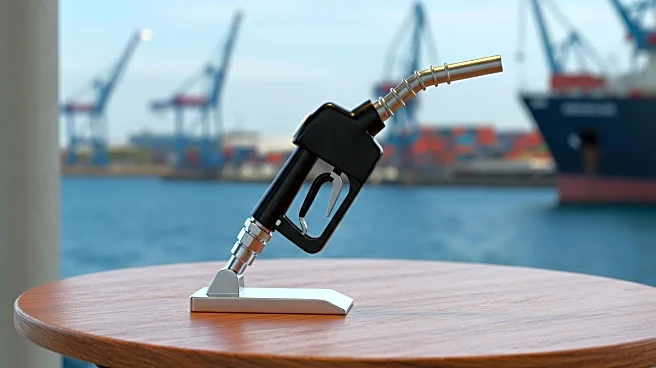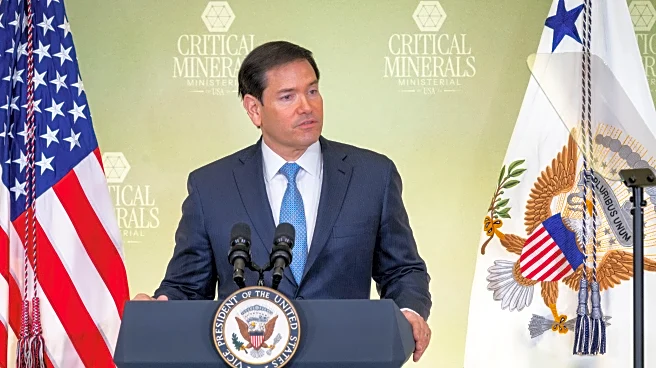What is the story about?
What's Happening?
The United Arab Emirates' port of Fujairah experienced a significant rebound in marine bunker fuel sales in July, reaching the highest levels in three months. According to data from the Fujairah Oil Industry Zone, sales totaled 640,715 cubic meters, marking a 13.8% increase from June. This surge was primarily driven by high-sulphur marine fuel sales, which rose by 28.4% to 205,597 cubic meters, the highest since January 2024. The increase in high-sulphur fuel sales was influenced by a wider price difference between low-sulphur and high-sulphur fuel oils, with the front-month hi-5 price spread hitting a six-month high of over $95 a ton in mid-July. Low-sulphur marine fuel sales also saw an 8.0% rise, reaching 435,118 cubic meters. The market share for high-sulphur bunkers expanded to 32%, while low-sulphur bunkers narrowed to 68%.
Why It's Important?
The rebound in marine fuel sales at Fujairah port highlights shifting dynamics in the global maritime fuel market, particularly the impact of price spreads between different fuel types. The increased sales of high-sulphur fuel suggest that economic factors, such as cost efficiency, are influencing purchasing decisions despite environmental regulations favoring low-sulphur options. This trend could affect global shipping operations, as companies may opt for more cost-effective fuel solutions, potentially impacting emissions and regulatory compliance. The changes in fuel sales composition also reflect broader market adjustments and could influence future pricing strategies and supply chain decisions within the maritime industry.
What's Next?
As the price spread between low-sulphur and high-sulphur fuels continues to fluctuate, stakeholders in the maritime industry may need to reassess their fuel procurement strategies. Shipping companies might explore alternative fuels or technologies to balance cost and compliance with environmental standards. Additionally, regulatory bodies could respond to these market shifts by enforcing stricter emissions controls or incentivizing cleaner fuel usage. The ongoing developments in fuel pricing and sales at Fujairah port may serve as a bellwether for similar trends in other major ports worldwide.

















